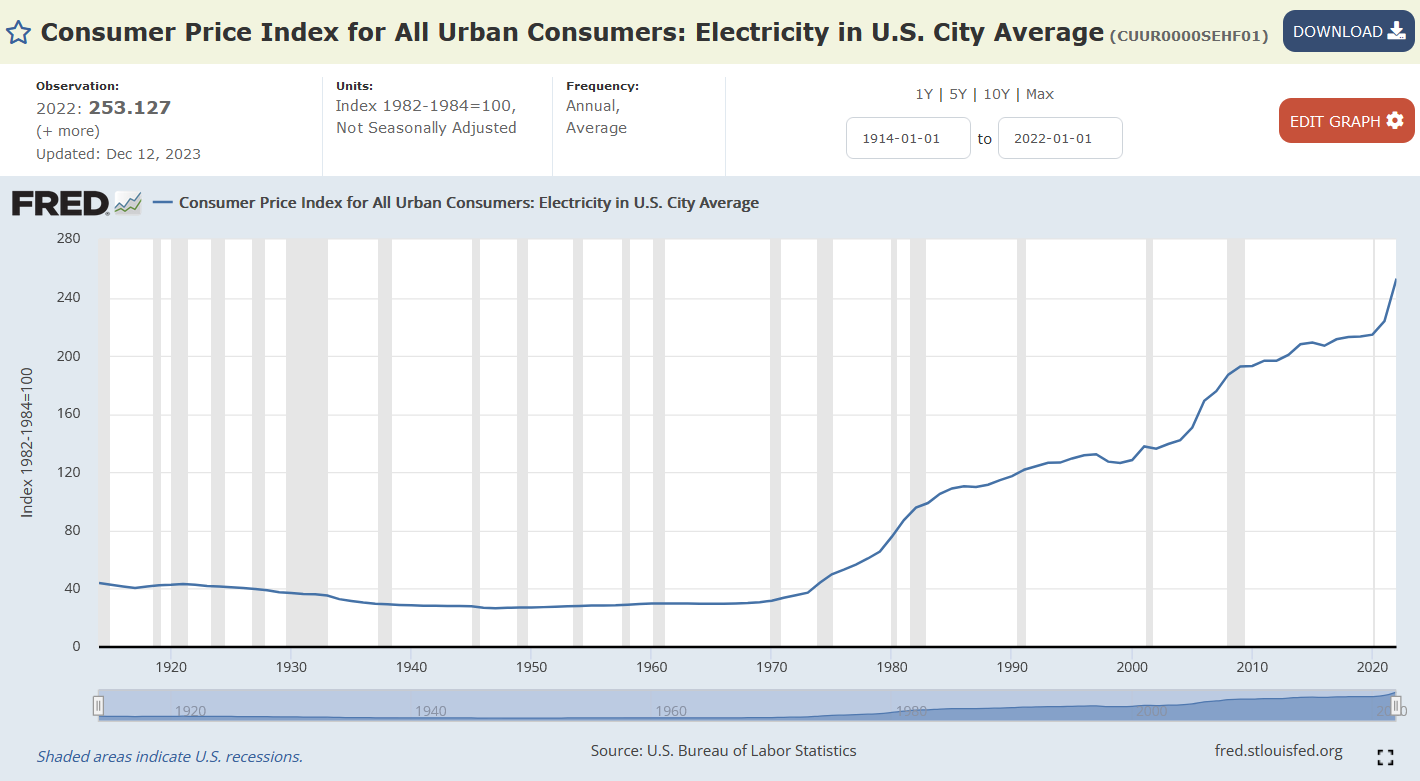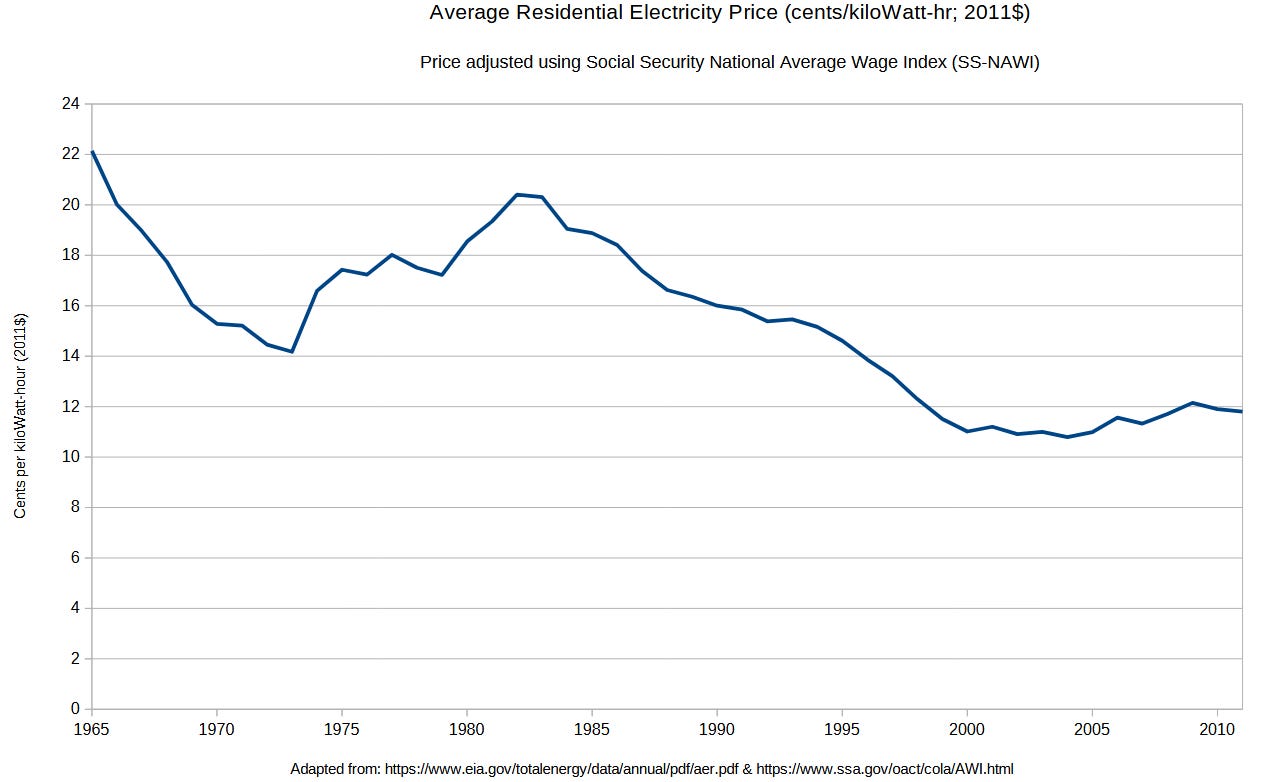When there is freedom, the price of necessities fall over time, so that less and less of your paycheck gets devoted to paying for them. It then becomes “easy to live.” Once it becomes easy to live, opportunities open up and you can spend your time on artful expression, personal improvement, or caring for others.
Before life has been made easy (when life is still hard), you are in a daily grind and do not have as much opportunity to enrich your life and the lives of others. One necessity is energy and, when society is free, the price of energy falls over time:
Notice how corporate fascists — colluding with governments on “Green Energy” deals — are attempting to make electricity unaffordable at right (price shoots up). For the 57 years from 1913 to 1970, though, when there was relative economic freedom, electricity prices fell over time.
While the Consumer Price Index used above can be trusted up to about 1996, the year when the Boskin Commission said that the CPI should be adjusted more for quality changes (“hedonic adjustment”), it breaks down thereafter.
That’s because it opens up the CPI to subjectivism, because if a government agent personally believes that an 8k television set is twice as good as a 4k one, then that government agent will not record a price increase until the price of 8k television sets have doubled from the original 4k price.
Under this extreme scenario, a 50% nominal price increase would still be recorded as a “price decrease” by the government agent responsible for that section of the CPI. If you don’t share the same personal values as that government agent, then a 50% increase in price could mean that you go without a new television.
With “hedonic adjustment” there is just too much room for subjective interpretation, making the CPI into a bad measure of inflation from 1996 going forward. Perhaps the single best measure of inflation is to compare prices to wages or paychecks, because if buying something takes up more of your paycheck, it costs you more to have it.
Here are the electricity prices, using the base year of 2011 (i.e., 11.8 cents per kiloWatt-hour), in terms of a wage index:
From 1965 until 1973, paychecks rose faster than electricity prices, but then inflation took off. As is usual, prices rose faster than wages during inflation — making the average living standard less affordable over time (inflation always harms workers).
From the mid-1980s to about 1999, prices fell in relation to wages, but encroachments on economic freedom kicked in and electricity prices began rising faster than wages once again.
Hypothetical: If the US stayed free, the price in 2011 could be 2-4 cents/kiloWatt-hr.
The current plan of globalist elites is to make electricity less affordable to more and more people over time — just like they’ve been making medicine less affordable. These globalist elites would like for you to forget that prices fall when society is free.
They envision a future of government-protected monopoly prices on everything: cars, clothes, medicine, energy, homes, etc. Their name for that future where regular people are struggling to make ends meet while they laugh all the way to the bank is:
The Great Reset
The real solution is to restore freedom, making it easier to live once again (like it used to be), but globalist elites are going to do everything in their power to prevent that from happening. Regular people can win and can restore freedom, if working together.




Methinks the populace still doesn’t yearn for freedom (see the massive capitulation of 2020-23) It may take the inauguration of The Great Reset to make our kids and grandkids rise up. I hope not.